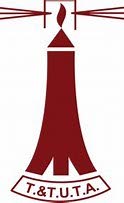Transformation of education begins with teachers

Part I
OCTOBER 5 marked the 28th year of commemoration of World Teachers’ Day. First established in 1994, it commemorates the 1966 signing of the ILO/UNESCO recommendation concerning the status of teachers, a standard setting instrument aimed at addressing the status and situations of teachers around the world.
Included in the recommendation are standards relating to education personnel policy, recruitment and initial training as the continuing education of teachers, their employment and working conditions. World Teachers’ Day focuses on “appreciating, assessing and improving the educators of the world” and provides an opportunity to consider issues related to teachers and teaching.
In-keeping with the objectives of World Teachers’ Day, TTUTA celebrates October as the month of the teacher. As part of its month-long celebrations, the second Friday in the month is set aside for district conventions which provide for teachers to come together to consider issues that affect them and the profession, usually under the theme selected in the year of celebration.
This year’s theme, “The Transformation of Education Begins with Teachers,” makes abundantly clear the pivotal role to be played by teachers. Over the next three instalments of TTUTA on Tuesdays, the implication of this theme will be discussed. The content shared is taken from the feature addresses delivered at the St Patrick convention centre on Friday, October 14.
As Sara Bushra, writing in the Asiana Times, noted, “the proper procedure for growth in life is implemented through good and proper education and the stairs and steps for that education are guided by a good teacher. An educated mind teaches others, and our beloved teachers help us achieve that.”
These are some of the philosophical guiding principles that form the foundation of many of us as educators. We believe that attaining the humanitarian rights of equal employment, equity, fairness and social justice cannot be achieved through uneducated citizens.
The maintenance of democracy and democratic principles and institutions is premised on an educated citizenry, people who can challenge, question and hold leaders to account. It depends on citizens who are sufficiently empowered with knowledge to make informed choices. Such people must also acknowledge their individual role in the building and maintenance of a fair and just society.
The social contract between teachers and society is ever evolving. Being an educator or teacher is a unique job that comes with its own perks and challenges. One can share the knowledge one has with anyone, but it takes a skilled educator to make an impact through their knowledge and information.
The role and function of schools have been constantly evolving, requiring a concomitant shift in our understandings of the nature and purpose of schooling. In this dynamic and fluid environment of competing imperatives, schools have been forced to reinvent themselves with teachers leading the revolution. Indeed, schools must maintain relevance since they take their mandate from the society, serving as the vehicle for the development of the society.
The transformation of education begins in our minds, believing that we have the power to make a difference; to effect change through our commitment and steadfast dedication to our calling, regardless of our difficulties.
Such transformed mindsets will manifest in our classroom and schools through our innovative approaches to teaching and learning, exciting learners, adapting curricula to ensure relevance and meaning to our students, ensuring that students are sufficiently productive and empowered to enlarge their choices.
It will embolden us to take charge of our schools, recognising that change comes from the bottom rather than the top. Teachers must be the drivers of that change because we are the practitioners, self-directed and constantly evolving through the acquisition of new skills and knowledge to confront a rapidly evolving task environment.
Historically, we’ve treated the challenges of classroom innovation and evolution as being exclusively tied to academic proficiency, owing to our slavish adherence to high-stakes testing where we define success in terms of the number of certified failures.
Our transformative strategies should involve new learning forms where students are allowed to make meaning on their own, navigating unpackaged content in connected networks to solve problems that matter to themselves and their communities. In other words, we teach the child and not the syllabus. We recognise that education is not only about certification but about enabling children to realise their maximum human potential, and as individuals who can add value to their own lives as well as the society in which they live.
To be continued


Comments
"Transformation of education begins with teachers"